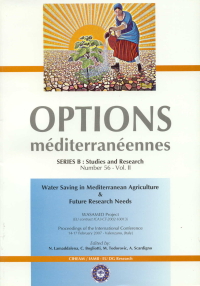| Article précédent | p. 149-161 | Article suivant |
The role of small scale wastewater treatment in the development of water resources in West bank of Palestine
At present, rural Palestinian areas dispose of the wastewater using cesspits, most of which have no cement base or liner allowing sewage to infiltrate into the earth, potentially polluting the ground water. Owners often avoid using the expensive services of the vacuum tankers to empty them. 12 percent of Palestinian communities have wastewater networks. These systems do not, however, exist in rural areas. Only one wastewater treatment plant is operating well. The uncontrolled flow of sewage causes many environmental problems and health hazards. Collection of waste water and constructing large treatment plants might be difficult in Palestine due to the great capital needed as well as the need of large areas to locate treatments plants. In addition, constructing large treatment plants requires a large area located in the same region to be irrigated by the treated wastewater. Small-case reuse of treated wastewater for agriculture would play a major role in increasing agricultural area in Palestine as well as help to conserve the environment.
- [ Afficher ]
- [ Télécharger ]
- [ Exporter la citation ]
Vous pouvez télécharger la citation au format :
- [ Imprimer ]
-
Mots-clés
DANGER POUR LA SANTE, EAU USEE, PALESTINE, REUTILISATION DES EAUX, TRAITEMENT DES EAUX USEES, ZONE RURALECiter cet article
Sbeih M.Y. The role of small scale wastewater treatment in the development of water resources in West bank of Palestine. In : Lamaddalena N. (ed.), Bogliotti C. (ed.), Todorovic M. (ed.), Scardigno A. (ed.). Water saving in Mediterranean agriculture and future research needs [Vol. 2]. Bari : CIHEAM, 2007. p. 149-161. (Options Méditerranéennes : Série B. Etudes et Recherches; n. 56 Vol.II). Proceedings of the International Conference WASAMED Project (EU contract ICA3-CT-2002-10013), 2007/02/14-17, Valenzano (Italy). http://om.ciheam.org/om/pdf/b56_2/00800184.pdf



